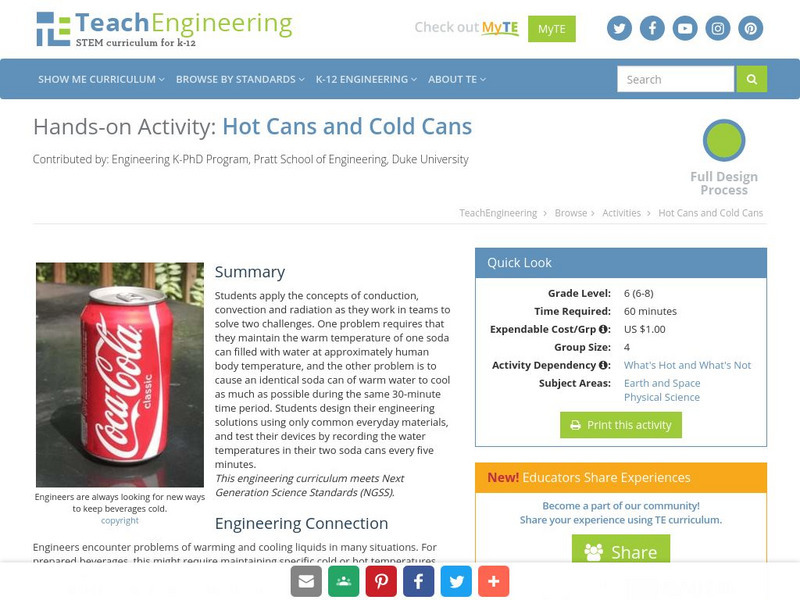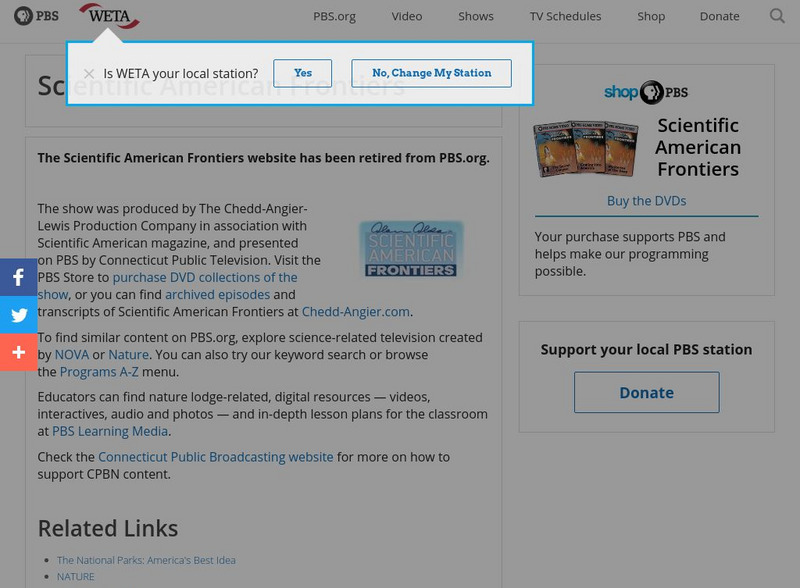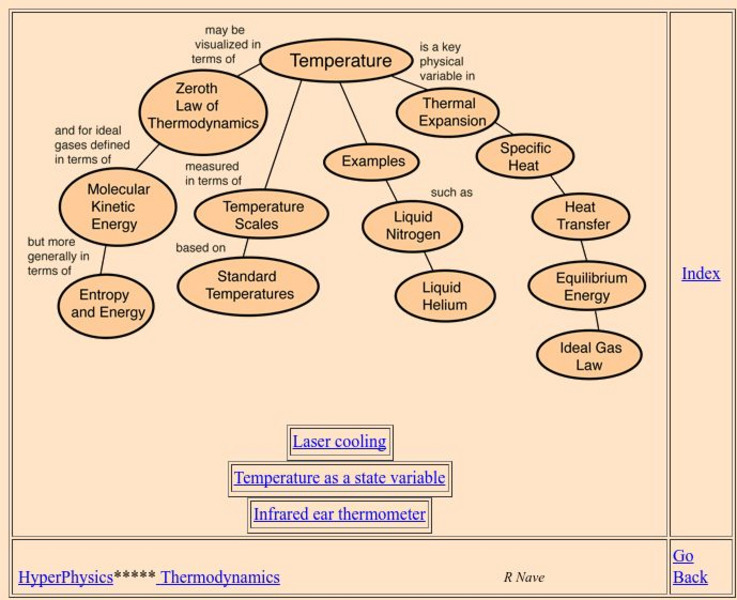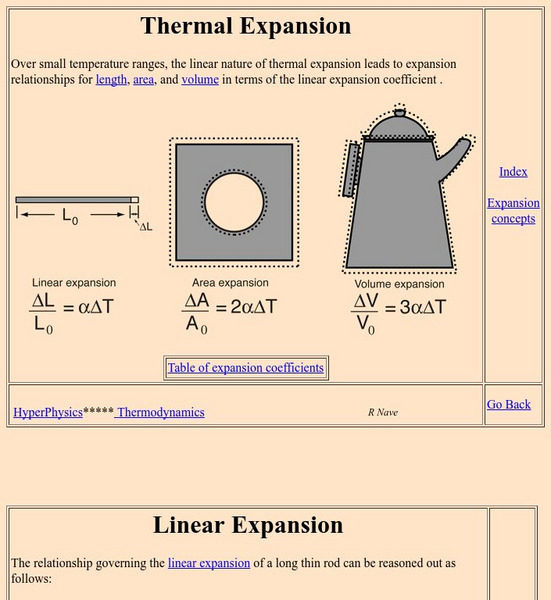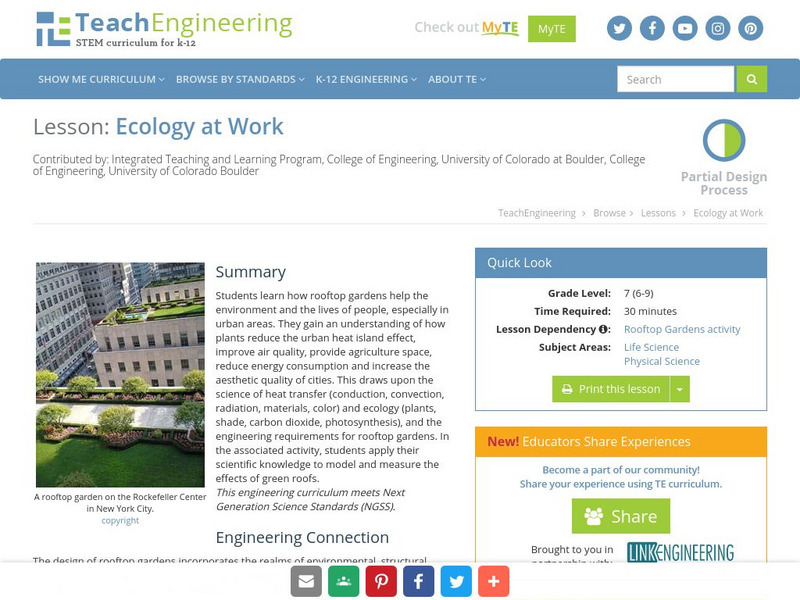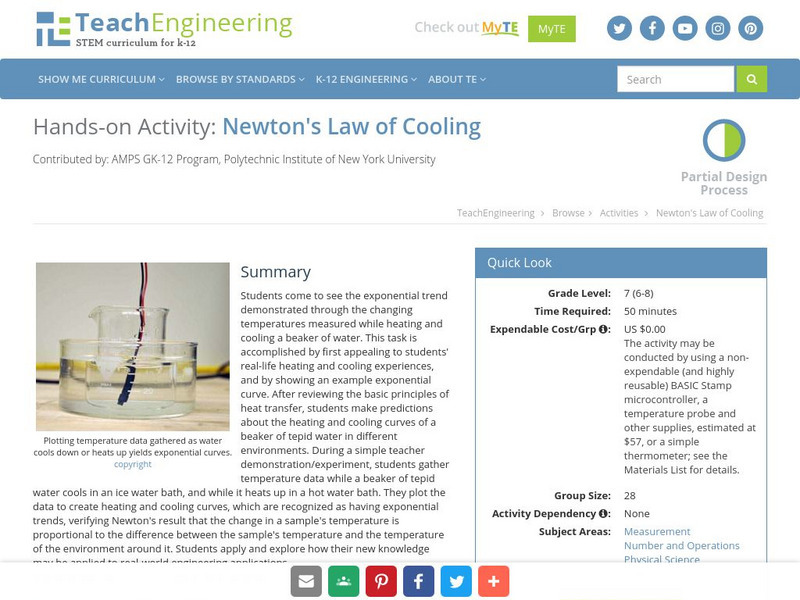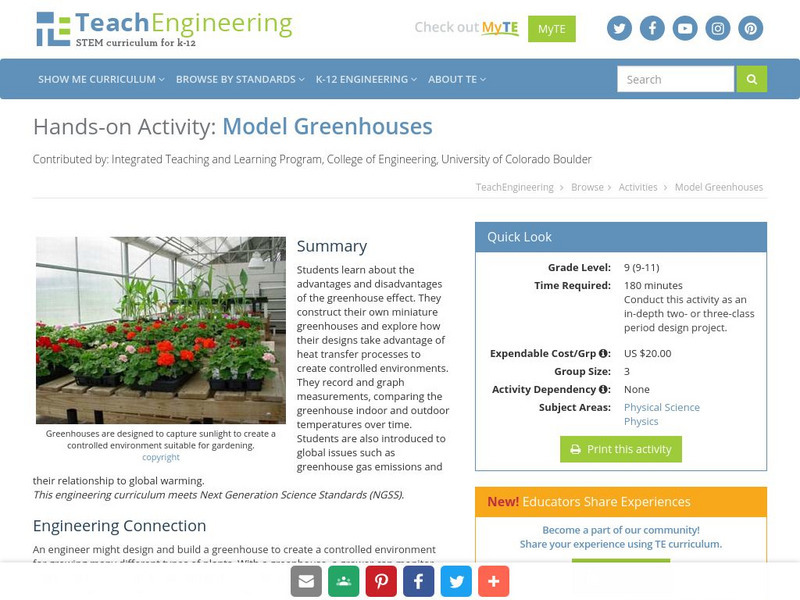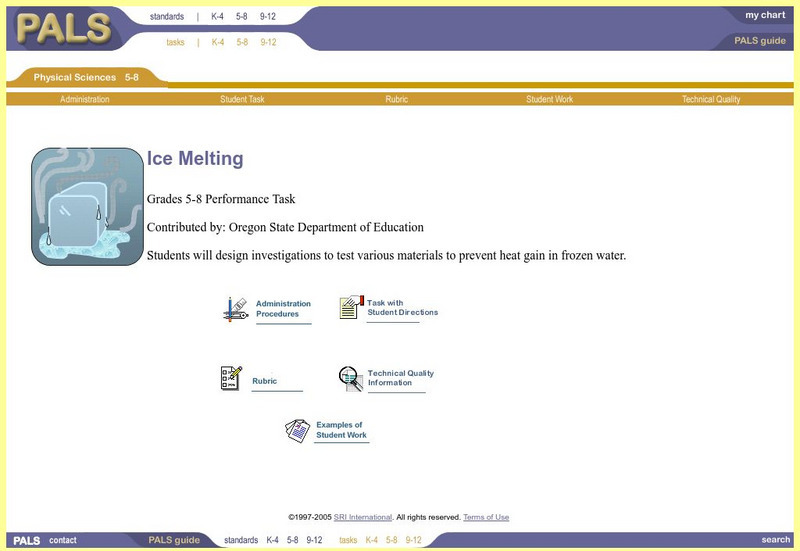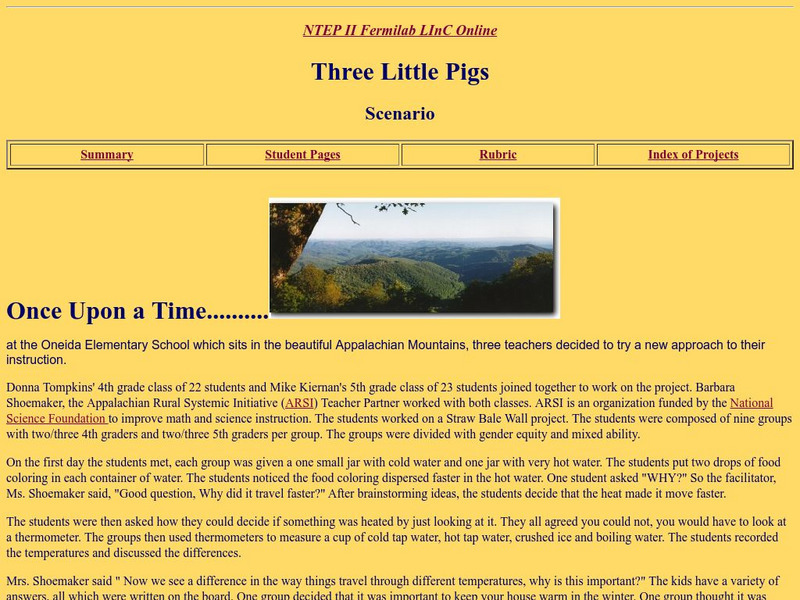National Weather Service
National Weather Service: Jet Stream: The Atmosphere
Learn about the atmosphere, it's make-up, the layers, the hydrologic cycle and more. The National Weather Service presents this site, including learning lessons and review questions.
TeachEngineering
Teach Engineering: Hot Cans and Cold Cans
Students apply the concepts of conduction, convection, and radiation as they work in teams to solve two problems. One problem requires that they maintain the warm temperature of one soda can filled with water at approximately body...
PBS
Pbs Teachers: About All You Can Eat: Truth or Consequences
Demonstrate how calories are measured by building a calorimeter to measure the transfer of heat energy during a chemical or physical change. Test and record data on the calories in a peanut.
Georgia State University
Georgia State University: Hyper Physics: Temperature Concepts
An indexing page which includes links to a wealth of pages detailing the conceptual meaning of temperature. A hypertext format allows the visitor to quickly gain access the desired information.
Georgia State University
Georgia State University: Hyper Physics: Temperature
A page describing the concept of temperature and temperature scales. An interactive JavaScript form allows the visitor to investigate the relationship between the Kelvin, Celsius and Fahrenheit scales; enter a value and allow the...
Georgia State University
Georgia State University: Hyper Physics: Thermal Expansion
Defines thermal expansion and elaborates on the concept of linear expansion. Provides the equation for linear expansion and includes an interactive JavaScript form which allows the visitor to investigate the relationship between...
Georgia State University
Georgia State University: Hyper Physics: Expansion Concepts
An indexing page from Georgia State University Physics Department which includes links to various other pages with information pertaining to thermal expansion. From expansion coefficients to equations to calculation and practice pages,...
Georgia State University
Georgia State University: Hyper Physics: Area Expansion
The concept of area expansion is presented and explained. An equation for calculating the amount of area expansion is provided.
Georgia State University
Georgia State University: Hyper Physics: Bimetallic Strips
The operation of bimetallic strips is explained and illustrated. The principle of thermal expansion is related to their operation. A link to applications of bimetallic strips is provided.
University Corporation for Atmospheric Research
Ucar: Atmospheric Processes Conduction
This simple demonstration helps students understand the concept of conduction. Site includes background information, images, and lesson plans outlining the demonstration of conduction.
TeachEngineering
Teach Engineering: Ecology at Work
Students learn how rooftop gardens help the environment and the lives of people, especially in urban areas. They gain an understanding of how plants reduce the urban heat island effect, improve air quality, provide agriculture space,...
TeachEngineering
Teach Engineering: Newton's Law of Cooling
Students come to see the exponential trend demonstrated through the changing temperatures measured while heating and cooling a beaker of water. This task is accomplished by first appealing to students' real-life heating and cooling...
Oklahoma Mesonet
University of Oklahoma: Overview of Meteorology
The University of Oklahoma explores numerous types of weather and atmospheric changes, as well as the reasons behind them. Content details the four seasons, common meteorological variables, the vertical structure of the atmosphere, how...
TeachEngineering
Teach Engineering: Model Greenhouses
Students learn about the advantages and disadvantages of the greenhouse effect. They construct their own miniature greenhouses and explore how their designs take advantage of heat transfer processes to create controlled environments....
Science Buddies
Science Buddies: Which Is the Better Insulation Material?
You've probably noticed that the price of gasoline can fluctuate a great deal from one year to the next. Using good insulation material is one way to conserve energy and save money. Learn here which insulation materials work better than...
SRI International
Performance Assessment Links in Science: Ice Melting
A lesson plan for guiding students through a simple research experiment focused on transfer of energy is described for teacher administration and student explanation. Also includes a detailed rubric for evaluating student work.
McREL International
Mc Rel: Whelmer #42 Learning Activity: Fire Sandwich
An easy to do activity if you have a Bunsen burner. The activity investigates combustion and heat conductivity. The activity is in lesson plan format that meets NSES standards.
Georgia State University
Georgia State University: Hyper Physics: Thermal Conductivity
Lists thermal conductivity values for a variety of topics. The link "Heat conduction discussion" on this page displays an equation for calculating the rate of thermal conduction using these conductivity values.
Other
L in C Online: Three Little Pigs
An energy transfer project for junior high school students is presented and described. Takes the form of a teacher lesson plan. Students may be able to extract some ideas for a project or experiment.
Energy for Sustainable Development
Esd Bulgaria: Kids & Energy: Energy Pioneers: David Nelson Crosthwait
A profile of David Nelson Crosthwait (1898-1976), an African-American electrical and mechanical engineer. He was considered an authority on heat transfer, ventilation and air conditioning.
National Institute of Standards and Technology (NIST)
Thermophysical Properties of Fluid Systems
At this site, the student can find out thermophysical properties of different fluids and gases.
Concord Consortium
Concord Consortium: Stem Resources: Greenhouse Light and Temperature
An interactive tool where students can create a model of a greenhouse and use a light sensor to measure the amount of light it receives from a lamp at various times of the day. Temperature is also measured. Data is plotted on graphs,...
Climate Literacy
Clean: Climate Change and the Oceans
Students discover the role that the oceans play in climate change, and how climate change affects the oceans. It is lesson eight in a nine-lesson module "Visualizing and Understanding the Science of Climate Change."
Science Education Resource Center at Carleton College
Serc: Why Is the Earth Still Hot Inside?
In this lesson, young scholars conduct heat transfer experiments to investigate why the Earth is still hot at its core, even after billions of years since its formation. They will learn that the rate of heat transfer is dependent on an...



